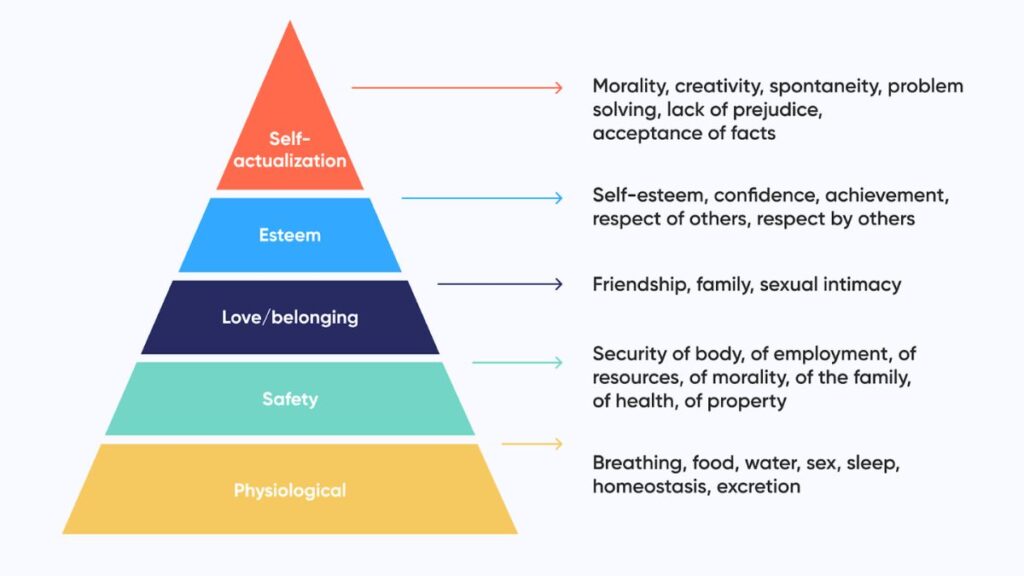Personal motivation plays a crucial role in achieving goals, pursuing passions, and enhancing overall life satisfaction. It serves as the driving force that propels individuals toward their aspirations, whether in personal endeavors, career paths, or self-improvement journeys. However, maintaining motivation can often be a challenge, as it is influenced by various internal and external factors. In this article, we will explore practical techniques to boost personal motivation, enabling you to unlock your full potential and lead a more fulfilling life.
Understanding the Nature of Motivation
Motivation is often viewed as a fleeting feeling, but it is a complex interplay of emotional, cognitive, and social factors. Psychologists typically categorize motivation into two main types: intrinsic and extrinsic. Intrinsic motivation arises from within; it is driven by personal satisfaction, interest, or the enjoyment of the activity itself. For example, a person who plays an instrument purely for the joy of making music exemplifies intrinsic motivation. In contrast, extrinsic motivation is influenced by external rewards or pressures, such as the desire for praise, recognition, or monetary gain. Understanding these two types of motivation is essential in determining which techniques will resonate with you and help sustain your drive.
Another critical aspect of motivation is the concept of self-determination, which highlights the importance of autonomy, competence, and relatedness in fostering a motivated mindset. When individuals feel that they have control over their actions, believe in their abilities, and establish meaningful connections with others, their motivation is more likely to flourish. With this foundation in mind, let’s delve into specific techniques to boost personal motivation effectively.
Set Clear and Achievable Goals
One of the most effective ways to enhance motivation is to set clear and achievable goals. Having well-defined objectives provides direction and purpose, making it easier to channel your efforts toward accomplishing them. Start by identifying what you want to achieve in the short term and long term. Use the SMART criteria—Specific, Measurable, Achievable, Relevant, and Time-bound—to create goals that are realistic and attainable. For instance, instead of stating, “I want to get fit,” rephrase it to, “I will exercise for at least 30 minutes, five days a week for the next three months.”
Breaking larger goals into smaller, manageable tasks can also help maintain motivation. When you accomplish these smaller milestones, it fosters a sense of achievement and encourages you to keep pushing forward. Celebrate your successes along the way, no matter how minor, to reinforce your progress and sustain your motivation over time.
Cultivate a Positive Mindset
Your mindset plays a significant role in your motivation levels. A positive mindset fosters resilience and encourages you to embrace challenges rather than shy away from them. To cultivate a positive mindset, practice gratitude regularly. Take time each day to reflect on the things you are grateful for, whether they are big or small. This practice shifts your focus from what you lack to what you have, enhancing your overall outlook on life.
Additionally, replace negative self-talk with positive affirmations. Instead of thinking, “I can’t do this,” reframe it to, “I am capable of achieving my goals.” By consciously challenging negative thoughts and replacing them with empowering statements, you can build your self-esteem and strengthen your motivation.
Visualization is another powerful technique to foster a positive mindset. Spend time imagining your desired outcome in vivid detail. Visualize not only the end result but also the steps you need to take to get there. This mental rehearsal can boost your confidence and motivation, making it easier to take action toward your goals.
Create a Supportive Environment
The environment in which you operate significantly impacts your motivation. A cluttered or negative space can lead to distractions and hinder productivity, while a supportive environment can inspire creativity and focus. Start by organizing your physical workspace. A tidy, well-structured area can enhance your ability to concentrate and motivate you to tackle tasks. Consider incorporating elements that inspire you, such as motivational quotes, artwork, or plants, to create a more uplifting atmosphere.
Beyond the physical space, surround yourself with positive influences. Engage with people who uplift and inspire you. Share your goals with supportive friends or family members who can encourage you and hold you accountable. Joining groups or communities aligned with your interests can also provide motivation and foster a sense of belonging. Connecting with like-minded individuals helps you exchange ideas, gain insights, and receive encouragement during challenging times.
Develop Healthy Habits
Establishing healthy habits is vital for maintaining high levels of motivation. Physical well-being directly influences mental well-being, and incorporating regular exercise, balanced nutrition, and sufficient sleep into your routine can significantly enhance your motivation levels. Exercise releases endorphins, often referred to as “feel-good” hormones, which can boost your mood and energy levels. Aim for at least 150 minutes of moderate aerobic activity each week, coupled with strength training exercises on two or more days.
Nutrition also plays a crucial role in motivation. Fuel your body with nutrient-dense foods that provide sustained energy, such as whole grains, fruits, vegetables, lean proteins, and healthy fats. Avoid excessive consumption of processed foods and sugary snacks, as they can lead to energy crashes and negatively impact your motivation.
Furthermore, prioritize sleep to ensure your body and mind are well-rested. Lack of sleep can lead to fatigue, decreased focus, and heightened irritability, all of which can hinder your motivation. Aim for 7-9 hours of quality sleep each night, and establish a consistent sleep routine to improve your overall well-being.
Embrace Challenges and Learn from Failure
Challenges are an inevitable part of any journey toward personal growth and achievement. Instead of viewing obstacles as setbacks, embrace them as opportunities for learning and growth. When you encounter difficulties, assess the situation, identify potential solutions, and take proactive steps to overcome them. This mindset shift helps you develop resilience and strengthens your motivation to persevere.
Additionally, view failure as a valuable teacher rather than a definitive endpoint. Reflect on your experiences, analyze what went wrong, and consider how you can improve in the future. Learning from failures fosters a growth mindset, empowering you to approach challenges with renewed determination and motivation.
Find Your “Why”
Understanding your deeper motivations—your “why”—is essential in sustaining long-term motivation. Take time to reflect on why your goals are important to you. What do you hope to achieve, and how will it impact your life? Connecting with your core values and passions adds meaning to your pursuits and ignites a sense of purpose.
Once you identify your “why,” keep it at the forefront of your mind. Write it down, create a vision board, or develop a mantra that encapsulates your motivation. Whenever you encounter obstacles or feel your motivation waning, revisit your “why” to rekindle your passion and determination.
Consistency and Routine
Establishing a routine can significantly enhance motivation by creating a structured environment that promotes productivity. Determine your peak productivity times and schedule your most important tasks during those periods. Consistency in your daily routine builds momentum and makes it easier to stay focused on your goals.
Consider implementing techniques such as the Pomodoro Technique, where you work in short, focused bursts followed by brief breaks. This method can help combat fatigue and maintain your motivation throughout the day. Additionally, allow flexibility within your routine to accommodate unexpected challenges or changes while ensuring you remain committed to your goals.
Seek Inspiration from Others
Sometimes, finding motivation can come from the experiences and successes of others. Seek out stories of individuals who have overcome obstacles to achieve their goals. Read biographies, watch documentaries, or listen to podcasts featuring inspiring figures in various fields. Understanding their journeys can provide valuable insights and remind you that challenges are a common part of any path to success.
Engage with motivational content regularly. Follow motivational speakers, authors, or social media accounts that align with your interests. Surrounding yourself with inspiration can elevate your mindset and provide the encouragement needed to persist in your endeavors.
Conclusion
Unlocking your potential and boosting personal motivation is a journey that requires self-awareness, commitment, and the application of effective techniques. By setting clear goals, cultivating a positive mindset, creating a supportive environment, developing healthy habits, embracing challenges, and connecting with your deeper motivations, you can enhance your motivation levels and achieve your aspirations. Remember, motivation is not a constant state but rather a dynamic process that can ebb and flow. By implementing these techniques, you can take control of your motivation, allowing you to unlock your full potential and lead a fulfilling life. Stay persistent, stay inspired, and most importantly, enjoy the journey toward becoming the best version of yourself.






